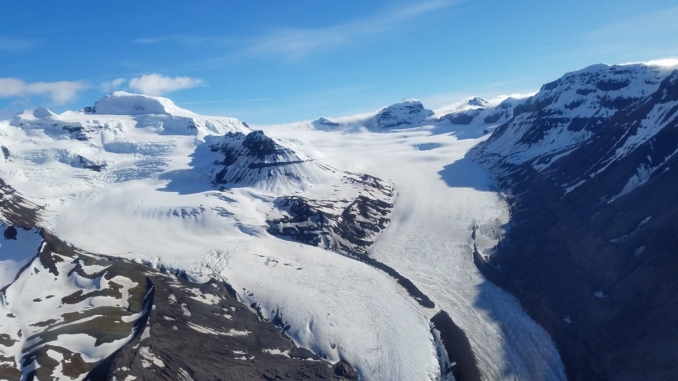Evidence of possible unknown ice age found in Scotland
The planet on which we live, Earth, is the third planet from the sun. It was formed about 4.5 billion years ago. Earth is the only place in the known universe confirmed to host life and is the fifth largest planet in our solar system. The history of Earth includes several major ice ages, an ice age being a long period of reduction in the temperature of the Earth's surface and atmosphere, resulting in the presence or expansion of continental and polar ice sheets and alpine glaciers. This history of ice ages includes the Huronian glaciation, the oldest known ice age which happened more than two billion years ago.
However, now a study of rocks in Torridon (Scottish Gaelic: Toirbheartan) an area in the north west Highlands of Scotland is pointing to evidence of a possible previously unknown ice age that took place from 1,800 to 800 million years ago. Information on the discovery was published in the Scottish Journal of Geology, and was made by Professor Adrian Hartley and fellow scientists at the University of Aberdeen's School of Geosciences. The period in which this previously unknown ice age occurred was in a relatively calm period of Earth's evolution that has been termed the "boring billion". The geologists made their discovery from features in rocks in Torridon caused by pebbles falling from melting icebergs to the bottom of lakes.
As reported in BBC Scotland Professor Hartley said: "In Earth's middle ages it is thought that not very much happened on the planet.
"Throughout this so-called 'boring billion' the global climate was temperate and unchanged. Life was limited to algae in the ocean, the land was completely barren and oxygen was 10% of what it is now.
"Until now, no evidence for climate change had been discovered but our study has shown there was ice at Earth's surface during this period."
Professor Hartley went on to say: "It's the first evidence globally for glaciation at this time in Earth's history - proving it wasn't such a boring billion after all."






